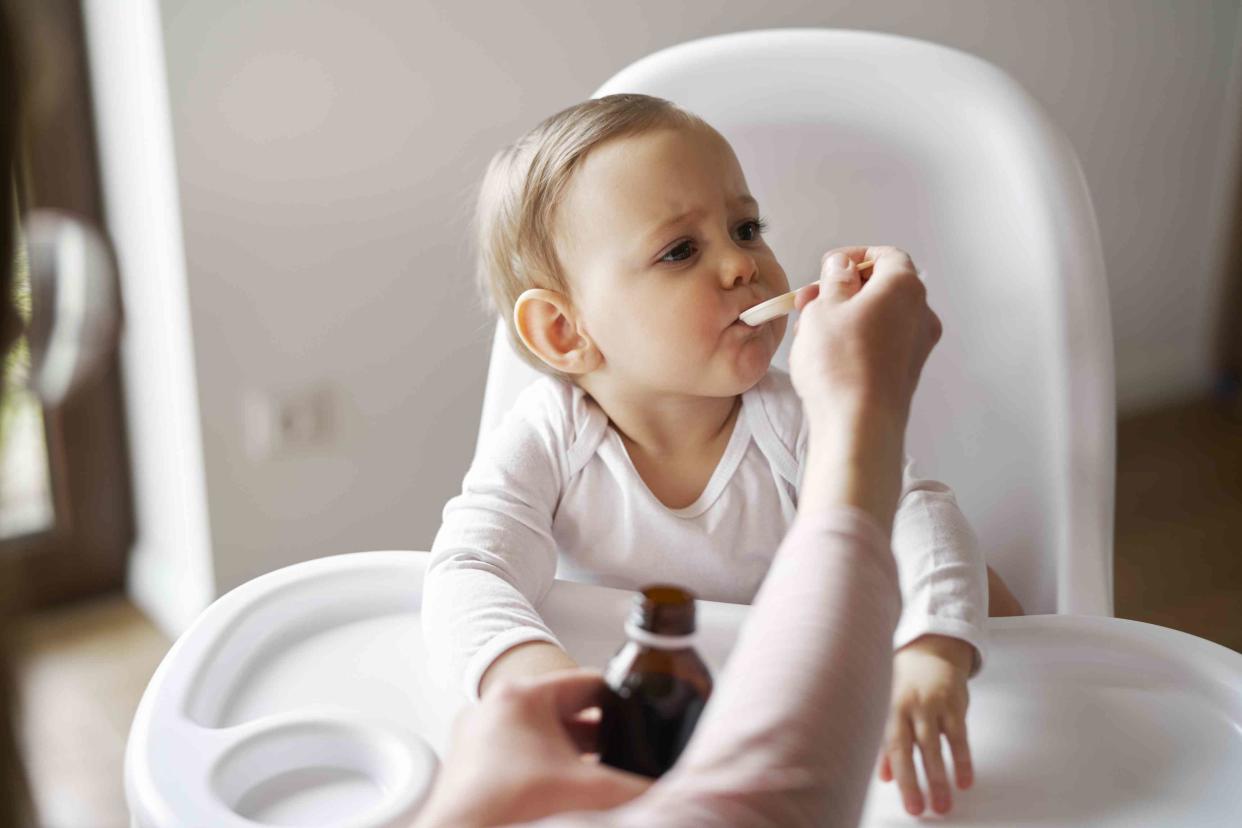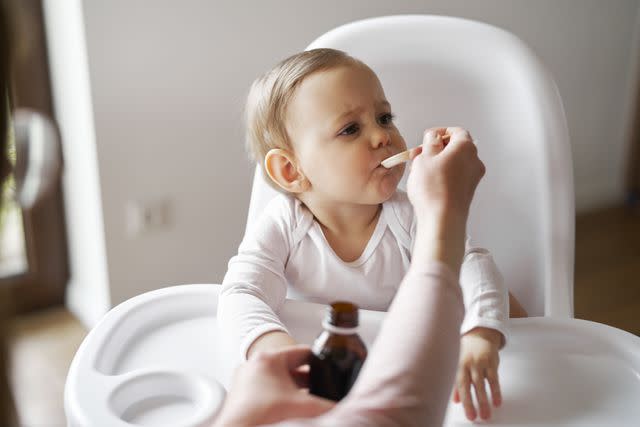What Is Gripe Water, and How Soon Can My Baby Take It?

gpointstudio / Getty Images
Medically reviewed by Jonathan B. Jassey, DO
Gripe water is an over-the-counter (OTC) herbal supplement that is generally used as a remedy for fussiness in babies. Parents and caregivers often use it for colic, gas, and teething. Like other supplements, the Food and Drug Administration (FDA) does not regulate it.
This article explains what gripe water is, its safety, how to use it, when to avoid it, and alternatives.

gpointstudio / Getty Images
A Natural Remedy, But What Is Gripe Water?
Gripe water ingredients vary by brand. However, they commonly contain some mixture of the following:
Sugar
Agave syrup
Ginger root extract
Fennel seed extract
Chamomile
Gripe water is different from gas drops. Infant gas drops are an OTC medication that contains simethicone to treat gas. They work by breaking up your baby's gas.
Gripe water is also not a laxative. In other words, if your baby is constipated, it will not help them poop.
Related: Health Benefits of 10 Healing Herbs
Gripe Water for Babies: Is it Safe?
There are not a lot of studies on gripe water, likely because it is not regulated. Due to the lack of stringent FDA regulations of supplements, there is some risk that gripe water may not be effective or safe.
Since herbs are allergens for some people, there is a risk that your baby is allergic to one or more ingredients.
One study found that gripe water was ineffective and was sometimes associated with side effects, including:
Colic
Constipation
Poison Control advises against giving infants herbal supplements. However, if you consider giving gripe water to your baby, consult with a healthcare provider before doing so. This is especially important for infants.
Gripe Water Age Limit
Many brands suggest the product may be used by babies as young as 2 weeks old, but check with a healthcare provider first. Some may suggest waiting to use gripe water until your baby is 1 month or older.
How to Give Your Baby Gripe Water
Generally, gripe water comes with a syringe dispenser, which you fill depending on your baby's age. Most brands suggest the following amounts by age:
Half a teaspoon for under 1 month
One teaspoon for 1 to 6 months
Two teaspoons for over 6 months
You should not exceed six doses in 24 hours. If you have the all-clear from a healthcare provider, offer your baby gripe water by following their directions or the directions on the bottle.
When Not to Use Gripe Water
Before using gripe water, it's important to determine why your baby needs it. For example, sometimes caregivers presume their infant has colic because their baby is fussy and cries a lot. However, crying and general fussiness can also be signs of illness.
Other signs that fussiness may be due to something other than colic include:
Change in sucking or feeding habits
Vomiting
More irritability when touched
An unusual-sounding cry
Change in breathing rate
Excessive sleepiness
The biggest concern with colic is that caregivers will become excessively frustrated and sleep deprived, increasing the risk of shaken baby syndrome (a brain injury resulting from being physically shaken). Whether your baby has colic or if something else is making them cry, it is critical to get an accurate diagnosis and support soon.
What to Use Instead of Gripe Water
There are countless ways to address fussiness and colic in babies. Experts recommend trying the following:
If breastfeeding, eliminate potential food sensitivities like milk, caffeine, and onions.
If formula-feeding, talk to a healthcare provider about switching to a protein hydrolysate formula (an easier-to-digest formula).
Avoid overfeeding your baby.
Carry your baby around in a sling or baby carrier to soothe the baby.
Rock them in a rocking chair.
Run a vacuum cleaner or other white noise to soothe them.
Use a pacifier.
Place them on their tummy across your knees and rub their back.
Swaddle them.
If you use a dryer or washing machine for white noise, do not place your baby on top of the machine because they could fall. If your baby falls asleep on their tummy while on your lap, turn them over so they are lying on their back when you transition them to their crib. This face-up sleeping position reduces the risk of sudden infant death syndrome (SIDS).
Summary
Gripe water is not a proven remedy for colic or gassy babies; however, many parents use it for these purposes. Furthermore, the FDA does not regulate it as an herbal supplement. Always check with a healthcare provider before giving gripe water to determine the cause of your baby's fussiness and whether gripe water is recommended.
Always follow a healthcare provider's instructions for dosage or package directions. Alternatives to gripe water include natural soothing techniques, like walking, rocking, using white noise, giving the baby a pacifier, and eliminating potential allergens in your baby's food.

